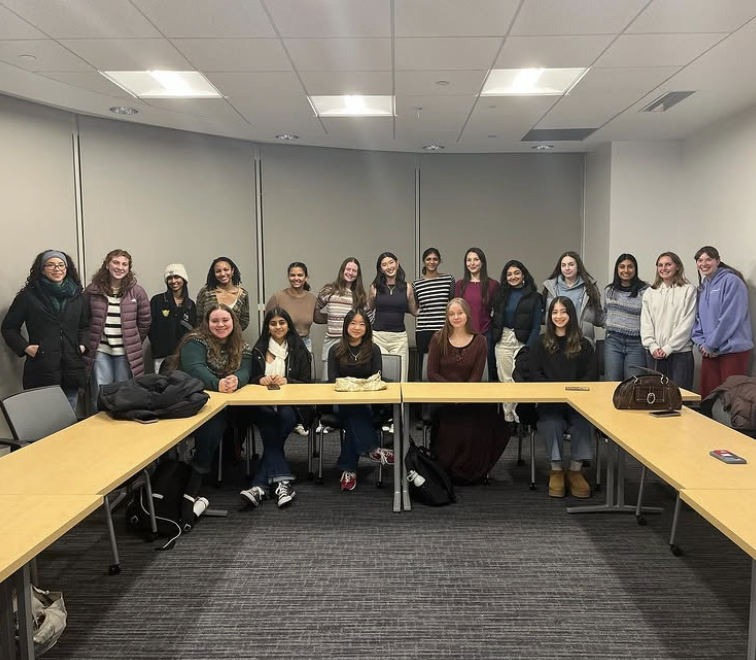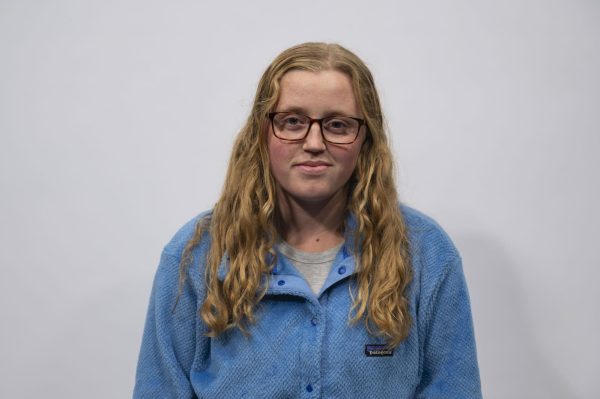At Science Club for Girls, members have one mission: get as many young girls involved in STEM as possible.
Science Club for Girls, or SCFG, is a national nonprofit organization that works with elementary, middle and high school students and has chapters at colleges across the country. SCFG works to tackle diversity gaps in science, technology, engineering and math, specifically with Black and Latina women and those growing up in underrepresented communities. The organization works to help girls find joy in science and experimentation with the world around them.
The gender and racial disparities in STEM fields remain a significant challenge, with women making up less than 29% of the STEM workforce and Black and Latina women representing less than 4%, according to the SCFG national website. These statistics highlight systemic barriers such as lack of access to quality STEM education, underrepresentation in leadership roles and implicit biases that discourage women from pursuing and staying in STEM careers. Limited mentorship opportunities, financial constraints and cultural stereotypes further exacerbate the gap, according to the SCFG website. Northeastern’s SCFG chapter is working to combat this through mentorship and increased STEM education for girls.
Only recently did the number of women admitted to the College of Engineering outnumber men at Northeastern. Since 2021, there has been a significant increase in the number of women in STEM, a trend that SCFG hopes to continue by increasing the STEM involvement of elementary and middle school girls.
The Northeastern chapter of the club works with seven local middle schools near Northeastern’s Boston campus and in the Cambridge area. The club has worked with thousands of kids in the area, doing weekly experiments and helping the girls learn to love science.
The club is run by a passionate executive board, all of whom have different backgrounds but are deeply invested in the mentorship of young girls in science.
“I thought that [SCFG] would be a really easy opportunity to get volunteer hours and make a huge difference with K-8 children,” said Audrey Lessing, a third-year health science major and president of the Northeastern chapter of SCFG. “And [the national organization] provides all of the materials and everything, so it just seemed super fun.”
Kavya Iyer, vice president of SCFG at Northeastern and a third-year biochemistry major, joined the club at Fall Fest in her first year at the university as a way to get involved with STEM outside of the classroom.
“I’ve always really liked working with kids, so I wanted to spread my passion for science by working hands-on with science projects and helping to get young girls into STEM fields and get them excited about science too,” Iyer said.
Every week, club members conduct hands-on experiments with students, which both the mentors and mentees enjoy.
Recently, the experiments have included a classic chemical reaction experiment with baking soda and vinegar volcanoes. The club members typically spend an hour with the kids twice a month, said Abigail Damasio, a third-year biology major and volunteer events coordinator for SCFG at Northeastern.
“We have been doing [two experiments] per month,” Damasio said, with a debrief meeting before and after each experiment for the mentors. The debrief helps mentors understand the impact they are making and helps form community within the club.
“At least in my group, [the students] really enjoy doing their science journals at the end, and it’s where they can reminisce about what they’ve just learned and [then] share with their parents, their dogs, their siblings, everyone in the family can get involved even if it’s just one kid in the club,” Iyer said.
One of the most rewarding aspects for the mentors is seeing the students progress through SCFG and eventually become junior mentors themselves.
“A lot of these girls also end up becoming junior mentors and mentors later on, and then going into STEM, so it’s really cool to be a part of that journey,” Lessing said.











